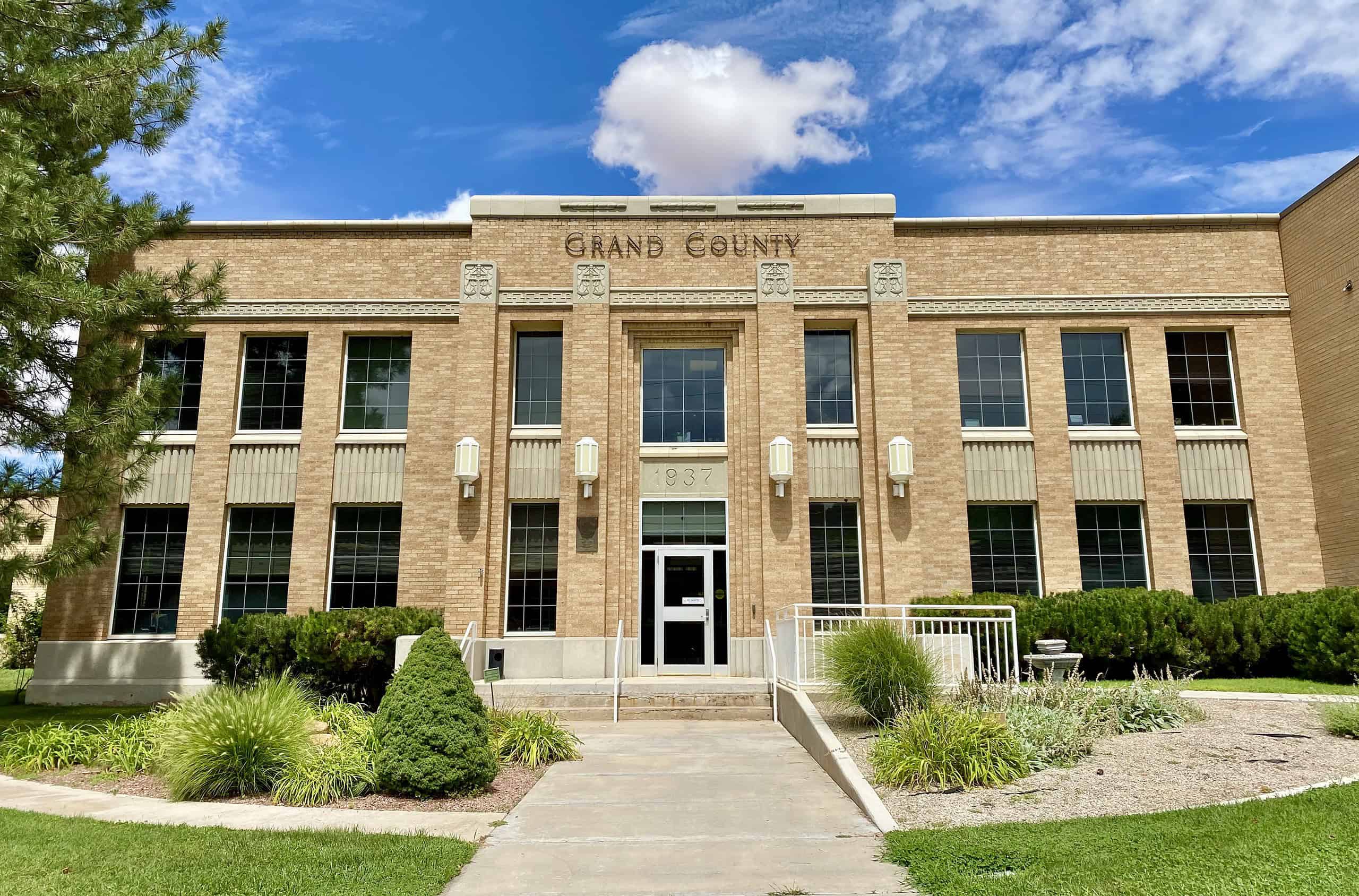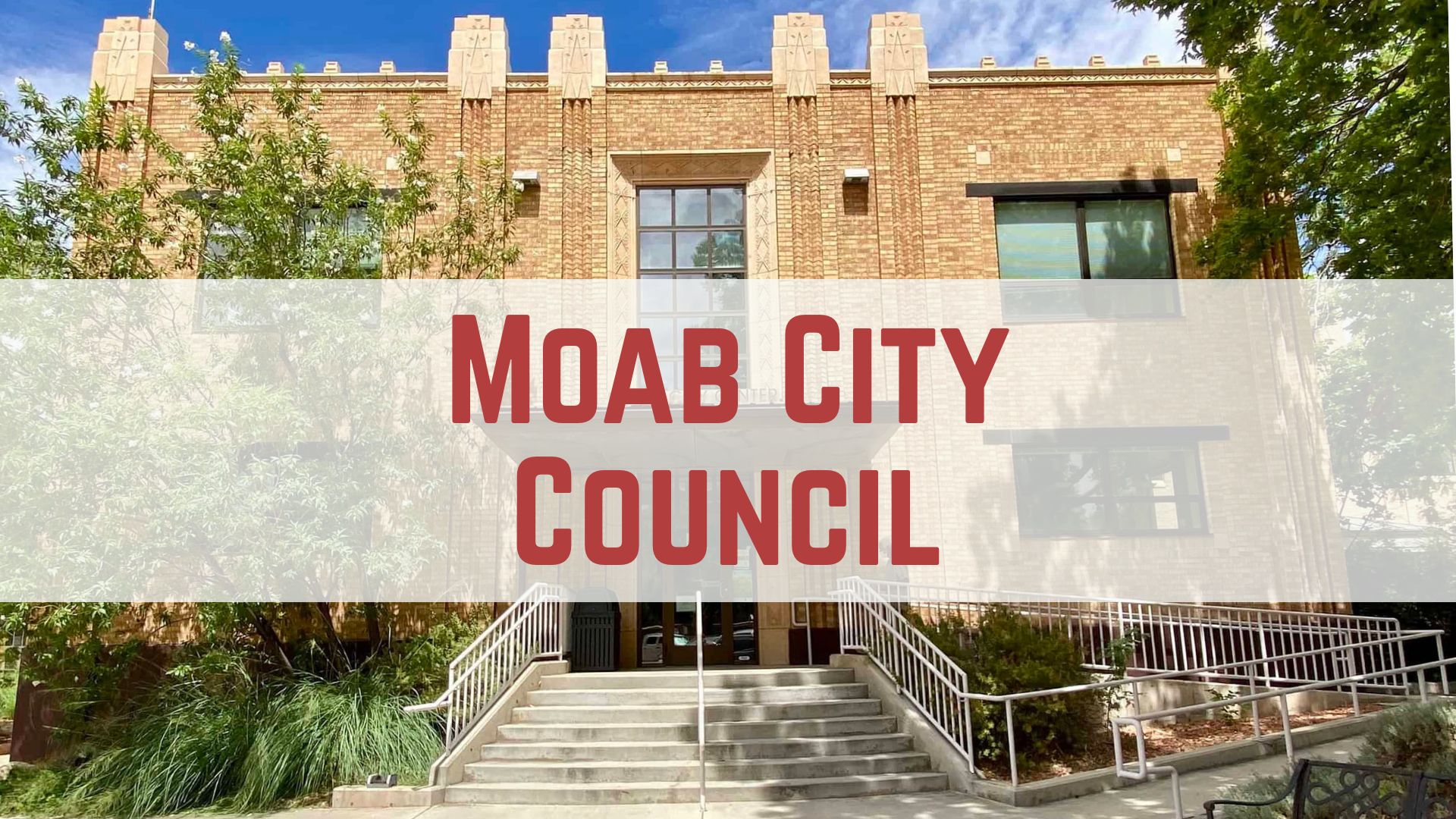Some information may be outdated.
On Jan. 17 the Grand County Commission discussed an as-yet unofficial proposal to revise 2021’s House Bill 247, legislation that reformed regulations surrounding transient room tax spending.
Utah Representative Phil Lyman, whose district includes Grand County, told county leaders he’s heard concerns about how Grand County is spending TRT, and he plans to take another look at amendments that increased spending flexibility and introduce a bill revising HB 247 in the current general session of the legislature.
Lyman told the Moab Sun News that he doesn’t want to see HB 247 eliminated.
“My intention wasn’t to totally gut HB 247. I think it does some good things,” he said.
It’s uncertain what elements of the 2021 bill may be on the chopping block—Lyman said he’s still working with staff and attorneys on a draft bill. He’s mainly critical of a TRT-funded Grand County grant program meant to support economic diversification.
HB 247 reforms also allowed for the county to channel more money to essential departments such as law enforcement, and county leaders are concerned that changes to the bill could harm those budgets, but Lyman indicated that he has his eye on the economic diversification clause.
Reforms
At the commission meeting, County Strategic Director Chris Baird gave an overview of the 2021 reforms. TRT revenues can be spent on either tourism promotion or mitigation of tourism impacts. Mitigation funds can be spent on things like convention halls, visitor centers, sports and recreation facilities, transportation infrastructure and programs, waste disposal services, road repair, emergency medical services, and law enforcement, among other things. Before 2021, 47% of the funding was earmarked for promotion and 53% for mitigation; HB 247 shifted that split by 10%, so that 37% was earmarked for promotion and 63% for mitigation.
Another component of HB 247 allowed for up to one third of the mitigation side of TRT revenues to be spent on economic diversification. The bill defines “economic diversification activity” as “reasonably similar to,” supplementing, or expanding any economic program administered by the state or the Governor’s Office of Economic Development.
In a conversation with the Moab Sun News, Baird noted that the promotion/mitigation split and the economic diversification spending are two separate components of the TRT reform bill; one or the other could be revised or repealed without affecting the other.
Impact on Grand County
A reversal of the 10% shift in the promotion/mitigation split could translate to over $800,000 that Grand County could no longer spend on the sheriff’s department or contributions to the Solid Waste Special Service District and the Moab Museum.
The need for more support for essential services such as law enforcement was one of the arguments Grand County leaders made at the state capital in 2021 when lobbying for HB 247. Staffing has been an ongoing problem at many county departments, including the sheriff’s. New Sheriff Jamison Wiggins said during his campaign that hiring a full staff was one of his first goals. Funding made available by TRT reforms allowed the county to offer higher salaries to deputies, raising recruitment and retention rates.
Lyman said he found the argument for more TRT money to be available to fund essential services compelling; he voted in favor of HB 247 in 2021. However, he said some of his constituents have raised concerns about the integrity of a new grant program developed and administered by the county this past year.
The STAR business grant awarded funds to local, small, non-tourism-related businesses for projects that would boost productivity and support economic diversification. A five-member evaluation committee considered applications and awarded a total of $1,011,160 to 35 recipients. (This reporter received a $1,500 award for her small business through the STAR grant program.)
Grand County Economic Development Department staff modeled the grant programs on similar programs administered by the Governor’s Office of Economic Development, as outlined in HB 247: they referenced the Rural County Grant Program, the Rural Employment Development Incentive, and a previous initiative called the Rural Fast Track Program.
The committee included Grand County Commission Chair Jacques Hadler, representing that body; Moab City Finance Director Ben Billingsley, representing the city; Moab Regional Hospital CEO Jen Sadoff, representing a community nonprofit; financial advisor and member of the Moab Chamber of Commerce Shalee Bryant, representing the business community; and Elvon Farrell, community strategist for the Economic Development Corporation of Utah, serving as a representative of the state.
Lyman noted that the distribution of the STAR grant funds is part of an ongoing legislative audit of Grand County, and declined to mention specifics of concerns he’s heard about the integrity of the process.
Baird said he’s heard through the grapevine that there are concerns about the grant process in the community, but also hasn’t heard specifics. He hopes to hear from people who do have concerns or are dissatisfied with the way the grant program was developed or carried out.
“I would be happy to meet with anybody that has concerns and try to see if we can find some common ground and work things out before abolishing the whole bill,” Baird said. He can be reached at cbaird@grandcountyutah.net. More information on the STAR grant can be found in a report from the Economic Development Department at grandcountyutah.net/grants.
Lyman, too, said he wants to keep having conversations.
“I never want to be doing stuff in a vacuum, I want to be talking to people,” Lyman said. “I have a really high regard for county commissioners in general and for the Grand County commissioners as well. I love Grand County as well, I was really thrilled to get it in my district. If people are willing to talk, they can come up with things that are honest and will work right.”
Appreciate the coverage? Help keep local news alive.
Chip in to support the Moab Sun News.





